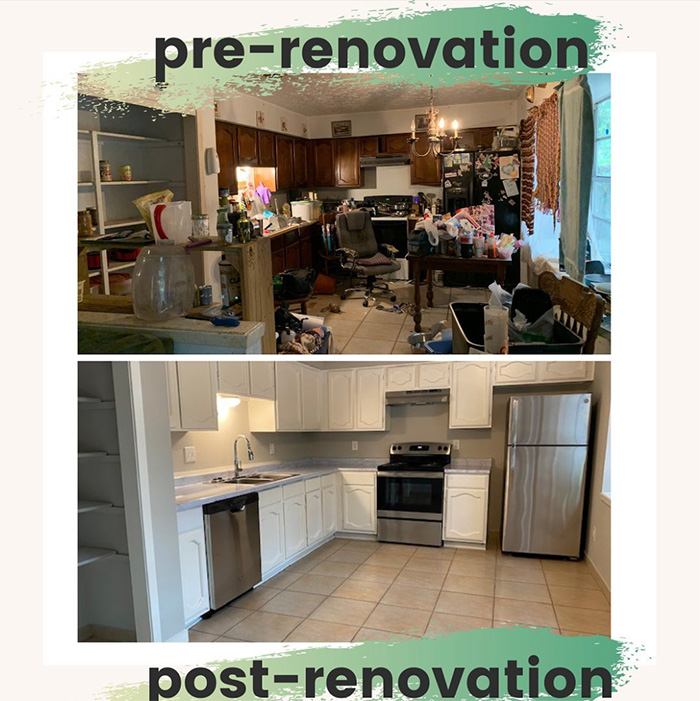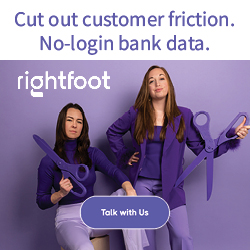Real Estate
My Real Estate Was Turned into an NFT. I Used that NFT as Collateral for a Loan.
February 25, 2024 Ooops, I did it again. I bought an NFT that grants me ownership of real land in Arizona in the same manner that I previously bought land in California. But this time I went a step further, I used it as collateral for a loan.
Ooops, I did it again. I bought an NFT that grants me ownership of real land in Arizona in the same manner that I previously bought land in California. But this time I went a step further, I used it as collateral for a loan.
Thanks to a proptech company called Fabrica, the owner of a plot of undeveloped land in rural Sun Valley, AZ transferred the rights to a trust for which control is governed by whomever owns the corresponding NFT. Long story short I bought that NFT. The difference between this NFT and say some digital collectible flavor of the month is that the land has some actual value in the real world. It’s not dependent on the blockchain for its worth and I can go to Sun Valley and build something there if I wanted. But with ownership governed by the NFT, I can also do something that might be a little bit more difficult otherwise for this remote and somewhat illiquid property, and that’s access liquidity in a highly efficient marketplace.
Specifically, I offered this property up as collateral for a loan on NFTfi, a peer-to-peer NFT loan marketplace at a very modest LTV of 32%. My offer was filled and I was able to access the funds with a single click of a button. If I default on the loan, the NFTfi smart contract will transfer the NFT to the lender and with that the lender would become the legitimate owner of the property in Sun Valley. The stakes in this case are real.
If you’re thinking about what kind of person would ever want to make this kind of loan, consider that more than $400 million worth of NFT loans have already been conducted on NFTfi since inception. The most commonly used collateral is digital artwork like cryptopunks and Bored Ape Yacht Club, which collectively represent $164 million of that total volume alone. When borrowers use this digital artwork as collateral the lender may end up stuck with an NFT with no physical connection to the real world. For an entire niche audience of lenders, this doesn’t bother them. However, as someone with a more apprehensive view toward risk in lending, the introduction of real physical collateral, actual property in the United States no less, is a game changer.
I am not the first person to ever engage in this type of transaction. According to Fabrica, the first property-backed NFT loan was transacted in 2021. However, if I might be afforded any claim to fame it is for conducting the first ever domain name loan over Ethereum.
Private Lender Expo Shows The State of Real Estate Investing Industry
November 19, 2021 “We’re here because we’re looking to see if we can branch into real estate lending,” said Porsche Brooks, CEO of Brooks Partners Finance, a company that provides a suite of funding services that include both MCAs and SBA loans.
“We’re here because we’re looking to see if we can branch into real estate lending,” said Porsche Brooks, CEO of Brooks Partners Finance, a company that provides a suite of funding services that include both MCAs and SBA loans.
Brooks was one of many that attended the Private Lender Expo in Atlantic City on Thursday, where financiers, developers and more talked heavily about apartment complex and suburb-centric commercial real estate development.
“There are opportunities here,” said Brooks. “We’re really looking to expand.”
While there was evidence of fintech making its way through the space, companies providing document-digitizing software were hesitant to label themselves as fintech companies.
A representative from CoStar, a technology-centric real estate information company, called themselves “fintechy” but made it clear that they are only looking to function within the current space, not revolutionize it.
Those who hosted booths at the event showed little interest in expanding business operations into small business financing as a way to grow their lending options. As real estate investments continue to pay hefty dividends, lenders who focus on that area aren’t looking to dilute their effort into other ventures.
“Small business lending can be such a headache,” said one real estate investment company representative when asked if they would ever venture outside of their investment property exclusivity into funding merchants. “The amount of money in real estate right now is evident all around us. There’s always a lot of people at stuff like this that will give you a million dollars, but now this stuff is becoming all real estate.”
NYC is Back, So is it Time to Buy Here?
July 12, 2021Now that New York City is back, opportunity abounds to move in or make money off the dynamic real estate market. You might be able to get in on it even if you’re a first time investor. To size up the market and the common questions to consider, we spoke one on one with Erin Sykes, the Chief Economist of Nest Seekers International.
You can also watch it here on deBanked TV.
Watch More from deBanked’s Real Estate Investing Docuseries Here.
Real Estate Investing For Beginners and More
July 6, 2021deBanked met with Kurtavious Ball, a physician assistant and savvy real estate estate investor in Philadelphia. Ball started small, risking about $30,000 he had set aside for a startup venture. If it didn’t work out, Ball said he was still young enough and capitalized enough to weather the loss. After doing a lot of reading and listening to gurus, Ball said the best course of action was to just plow forward and give it a try. He’s happy he did.
deBanked’s interview with Ball is part of a nationwide docuseries with business finance and real estate professionals.
Real Estate Docuseries
All Docuseries
Merchant Cash Advance Tutorials
Midtown Dead? No, It’s A Good Time to Buy
March 25, 2021 When it comes to working from home and the flight from midtown Manhattan offices the past year, one expert on commercial real estate said it isn’t the end of the metro area way of life: it’s a great time to buy.
When it comes to working from home and the flight from midtown Manhattan offices the past year, one expert on commercial real estate said it isn’t the end of the metro area way of life: it’s a great time to buy.
“There’s some great deals. I mean, on both rents, leases, and purchases in many of these markets. So tremendous opportunities, and there’s a lot of power on the sidelines, who is well aware of it,” CEO Anthony Romano of the Commercial Real Estate analytics firm CREtelligent. “In San Francisco, Manhattan, in Dallas in the Miami marketplace, there’s some incredible opportunities that I think people will seize.”
At CREtelligent, Romano helped launch the Radius platform, an all-in-one automated appraisal platform that draws site data for identifying commercial properties. When he joined the firm, he aimed at making the commercial real estate world as seamless as some residential loans.
“Before, during, and after the commercial real estate transaction, it’s super inefficient,” Smith said. “We wanted to say, how do we fix it? A client of ours, an investor, a broker, a bank, or anybody who’s involved in the transaction, can come to the Radius platform and put in an address and APN, and identify their property.”
Instead of ordering 10 or 12 assessments from a handful of sources, a processor must only visit the CREtelligent site. Based on the know-how it took to create the platform, Romano said the trends like the 10 year Treasury return are directing the CRE market on the up and up in the coming months.
Romano said that most commercial properties have a Loan-to-Value (LTV) ratio of about 70% in his experience. If a large office building or retail store has a $10 million mortgage keeping it open, it would have to drop by $3 million before the bank starts getting uneasy- a point the market is nowhere near.
Super Bowl Sunday: Battle of the Mortgage Brokers
February 2, 2021 This Sunday in Tampa Bay, the Chiefs, and the Buccaneers will duke it out, while a second mortgage-based rivalry plays out in the ads between plays.
This Sunday in Tampa Bay, the Chiefs, and the Buccaneers will duke it out, while a second mortgage-based rivalry plays out in the ads between plays.
A year ago, millions watched as Rocket Mortgage and United Wholesale Mortage (UWM) went head-to-head with competing multi-million-dollar ads. This year, they will both return, but it looks like they might play nice after a grueling pandemic.
Last year, Rocket appeared for their third consecutive Super Bowl, but then in an upset came the #BrokersAreBetter ad campaign. UMW called out their biggest competitor: “Playing with rockets is great when you’re a kid, but when it’s time to get a mortgage, you quickly realize a rocket is complicated and expensive,” and promoted FindAMortgageBroker.com.
It was a jab that earned millions of tweets, but this year Rocket has a chance to reply, and “double down” with two ads, this time highlighting local brokers as well. Rocket Companies today launched a national mortgage broker directory on its website.
“The directory not only includes the 43,000 individual loan officers who work with us but every mortgage broker in the country,” said Austin Niemiec, the executive vice president of Rocket Pro TP, in a statement. “This new resource is not about us; it’s about giving consumers more choice and assuring they know how an independent loan officer in their community can help them.”
UWM is also running an ad showing an imaginary tinder-swiping house hunting app, again featuring the FindAMortgageBroker.com directory.
“We believe we’re the one genuine partner of mortgage brokers nationwide,” said Sarah DeCiantis, chief marketing officer of UWM, in a statement. “We thought this ad would not only be relatable and entertaining given the pandemic’s acceleration of online dating but also educate consumers that brokers are their number one resource for finding a mortgage that fits their financial situation.”
Both firms are deciding to buy ads while other major brands are pulling out; For example, Budweiser’s decision to put ad money toward covid vaccine distribution. These brands will be saving money, as a 30-second spot during the Super Bowl runs for an estimated $5.5 million, the AP reports.
Next year’s Super Bowl 56, will be played in SoFi Stadium.
Doorvest Raises $2.5M in VC Funding
January 27, 2021 San-Francisco based online real estate investment firm Doorvest announced today it received $2.5 million in VC funding with Mucker Capital leading the round.
San-Francisco based online real estate investment firm Doorvest announced today it received $2.5 million in VC funding with Mucker Capital leading the round.
Doorvest used the opportunity to announce a “Home Renovation Guarantee,” a pledge to cover all renovation-related repairs and maintenance on a new investment property for the first year.
Doorvest offers users an online platform to invest a range of $20,000 to $100,000 in rental properties. The firm handles everything from purchasing the properties to renovating, and leasing; paying the dividends back to investors.
“The true cost of hidden repairs and maintenance during the first year of homeownership often comes as a surprise as it’s difficult to predict,” CEO and Co-Founder of Doorvest Andrew Luong said. “We’ve found that the biggest mental hurdle to purchasing an investment home is the uncertainty of maintenance costs and repairs.”
 The new funding adds to the total $3.6 million the firm has raised to date, aimed toward bringing retail-investor liquidity to the estimated $3 trillion real estate market. William Hsu, the co-founder of Mucker Capital, will be joining Doorvest’s board of directors. According to the Federal Reserve, Americans who invest in real estate are on average worth 40x more than Americans with no skin in the game, Hsu said.
The new funding adds to the total $3.6 million the firm has raised to date, aimed toward bringing retail-investor liquidity to the estimated $3 trillion real estate market. William Hsu, the co-founder of Mucker Capital, will be joining Doorvest’s board of directors. According to the Federal Reserve, Americans who invest in real estate are on average worth 40x more than Americans with no skin in the game, Hsu said.
“While real estate is the #1 most favored investment asset class for Americans, only 5% of Americans own investment real estate,” Hsu said. “Doorvest’s platform has hit a nerve since launch. It has seen a 32% month-over-month increase in customers since the pandemic hit. This entirely online model naturally gains more appeal, and customers seek out safe yet easily accessible investment vehicles away from other volatile and inflationary markets.”
Why Funders Are Investing in Real Estate As Their Side Hustle of Choice
January 25, 2021
 After five years in finance, Peter Ribeiro decided to strike out on his own and start US Business Funding in 2008, providing equipment leasing and financing for businesses. But when the housing market collapsed four months later, Ribeiro saw a second major business opportunity emerge. Earlier that year, he had purchased a $250,000 home in southern California that appraised for $355,000 at the time he bought it. Within seven months, the home’s value plummeted to $95,000. “I told myself I knew the area really well, so I might as well start buying some properties.”
After five years in finance, Peter Ribeiro decided to strike out on his own and start US Business Funding in 2008, providing equipment leasing and financing for businesses. But when the housing market collapsed four months later, Ribeiro saw a second major business opportunity emerge. Earlier that year, he had purchased a $250,000 home in southern California that appraised for $355,000 at the time he bought it. Within seven months, the home’s value plummeted to $95,000. “I told myself I knew the area really well, so I might as well start buying some properties.”
At that point, Ribeiro’s fledgling company still wasn’t generating much revenue. “I thought, ‘Man, I just can’t get a lot of loans done right now. I only have three or four employees.’ That’s how I got into the real estate industry.” Twelve years later and at the height of a global pandemic, Ribeiro is simultaneously running two thriving ventures —US Business Funding, and a portfolio of hundreds of rental properties he now owns.
At a time when fintech startups and other industry innovators are looking for investors, alternative lending execs like Ribeiro are instead choosing to put their money in real estate to beef up their investment portfolios. Although some execs shy away from talking publicly about their real estate dealings, citing the fact that they don’t want too much exposure, the consensus is that there’s a lot of money to be made in buying, selling and renting property – if you know what you’re doing.
 “I think real estate is lucrative because when you look at the history of investments, there are two or three ways to really make money: You can put your money in the stock market, or you can put it in bonds. And the other one guaranteed to go up in value is real estate,” Ribeiro says.
“I think real estate is lucrative because when you look at the history of investments, there are two or three ways to really make money: You can put your money in the stock market, or you can put it in bonds. And the other one guaranteed to go up in value is real estate,” Ribeiro says.
To Ribeiro, real estate offers a few major advantages: It’s a tangible asset. You can leverage it as it appreciates in value. Deductions make it so you pay very little in taxes. And it offers significant cash flow. “It’s the best investment you can make,” he says.
What makes real estate an especially good fit for alternative lending and fintech execs is that they possess the skills, resources and financial literacy to succeed at it.

“Real estate is a long-term gain,” Ribeiro says. “The industry we’re in is a cash-flow cow. People who are doing well are printing money. But what can you do with that money? You can put it in the stock market, but you won’t control much. Then you pay capital gains on it.”
 Attorney Paul Rianda, who represents both cash advance clients and real estate investors, says it makes sense that real estate investing appeals to alternative lenders – especially amidst the uncertainty of COVID-19.
Attorney Paul Rianda, who represents both cash advance clients and real estate investors, says it makes sense that real estate investing appeals to alternative lenders – especially amidst the uncertainty of COVID-19.
“If you’re a cash advance guy and COVID happened, then you’re not doing very well,” he says. “If you diversified your assets by doing real estate and cash advance, you’re able to weather these downturns a lot more easily than you would otherwise.”
Rianda has not yet counseled any of his own cash advance clients on real estate matters. But based on his insights from working with both areas, he says real estate would be a logical move for MCA executives, and he’s seen some of his clients in the bankcard industry buy up properties.
“One of my clients had a portfolio of merchants and sold it for a few million, then flipped over to real estate. So it’s a means (to an end),” Rianda says.
‘Snowball effect’
Ribeiro has relied on a simple strategy to steadily build his portfolio of residential properties: Buy. Fix. Leverage. Repeat.
“I feel like the portfolio is doubling every couple of years. It’s just a snowball effect,” he says.
After Ribeiro buys a home, he waits about six months before he has it appraised and fixes it up in the meantime.
“If you go to the bank within the first six months of purchasing it, they’re going to give you the actual market value of whatever you purchased the house for,” he says. “If you wait six months, they’ll reappraise the home and give its true market value, which could be another 40, 50 or 60 percent. And so now you’re going to have a lot more equity in the house, and you’re going to get a lot more money when you leverage that home to go buy the next one.”
Ribeiro says he sees lots of people making the mistake of buying a home, and then going to the bank a week or two later for a loan.
 Constantly maintaining a positive cash flow is Ribeiro’s number one rule of real estate investing. “Your best friend is depreciation,” he says.
Constantly maintaining a positive cash flow is Ribeiro’s number one rule of real estate investing. “Your best friend is depreciation,” he says.
Depreciation refers to one of the key tax benefits of real estate. Since owning a rental property is technically a type of business because it generates income, the property is considered a business asset. The IRS allows you to deduct the cost of acquiring that asset – the property – over the span of its useful life. For residential properties, the IRS sets a standard depreciation period of 27.5 years.
So if you buy a $100,000 property with a $20,000 land value, $80,000 of the asset is considered depreciable. Over the course of 27.5 years, you can take an annual deduction of just over $2,900 a year.
The trick, Ribeiro says, is to stick to lower-priced properties with an 80/20 home-to-land value. Most of his properties are single- and multifamily homes between southern California and Las Vegas.
Like Ribeiro, Rianda’s investor clients concentrate on one geographic area to find the best properties. “They look at the area for a long time, understand the area,” he says. “In my neighborhood, three blocks can make a 50 percent difference in the price of a house. You need to focus on a particular geographic area and do a lot of transactions in it.”
Small portfolio, big impact
 Real estate investing has provided a way for Jared Weitz to earn more money while being able to focus on his primary job as CEO of New York-based United Capital Source Inc., the company he founded.
Real estate investing has provided a way for Jared Weitz to earn more money while being able to focus on his primary job as CEO of New York-based United Capital Source Inc., the company he founded.
“For me, it’s just a really good second income stream and a way to have a secure return of 4.5% to 6.5% a year,” he says.
Growing up, Weitz got a feel for real estate by watching his uncles invest in multifamily properties. At one point, Weitz’s uncle owned 15 different multifamily homes, and Weitz would help do the maintenance on them.
Eight years ago, Weitz invested in his first two-family home and has fixed and flipped eight properties since then. He currently owns two two-family homes and invests primarily in multifamily homes in Long Island, Brooklyn and Queens. Over the next five years, he plans to pick up at least two more four- or eight-family properties. Working with a small portfolio of residences in his home state has allowed Weitz to have full control over managing his properties and to turn a good profit.
“I think for me, it just offers more liquidity,” he says. “It’s an asset I can sell and liquidate at any time. That’s really important for me.”
Ideally, Weitz would like for his investment to build generational wealth that he can pass down to his son. With many people in the U.S. unable to qualify for mortgages, Weitz sees real estate investing as an opportunity to help the economy by giving renters a place to live and put down roots. “Depending on the neighborhood, you can put yourself in a situation where you have good renters for 20 to 30 years. They want to raise their families and have their kids grow up there,” he says.
Litigation among the pitfalls
Even though Ribeiro has had success with his business model, he cautions that there’s considerable risk involved with real estate.
“I love the industry. It’s a passion. It’s beyond my wildest dreams of the size of the portfolio and how well it performs,” he says. “But don’t think it’s all cupcakes and unicorns. There’s a lot to the madness. That’s why not everyone can replicate the model.”
 “Professional litigators” and multiple lawsuits from renters are a major downfall that Ribeiro points to. He sees at least one substantial suit each year and tries to settle outside of court whenever possible.
“Professional litigators” and multiple lawsuits from renters are a major downfall that Ribeiro points to. He sees at least one substantial suit each year and tries to settle outside of court whenever possible.
As an attorney, Rianda says his real estate clients call on him not just for the purchase of the property, but for various issues that occur during the ownership period.
Here’s one scenario: A property owner has a tenant who isn’t paying rent, so the property owner sues the tenant. But while the lawsuit proceedings are under way, the tenant declares bankruptcy, which puts a stall on further litigation.
“There are people who understand the system and can make it difficult for you to get them out (of the property),” Rianda says, adding that it’s important to have legal counsel readily available. “You need someone who has really done this a lot and knows how the system works to get that person out of the rental property as quickly as possible.”
To minimize liability, Ribeiro has divided his properties into about 10 different business entities – each with a separate umbrella insurance policy.
Rianda sees his own real estate investor clients follow this strategy by grouping multiple homes under the name of an LLC. “If you personally own all these various assets, there’s the potential that if something catastrophic happened at one, it could bleed into all your other properties and potentially put them at risk,” he says.
Dual careers
Ribeiro’s real estate investments and finance company both serve as full-time occupations for him. Some years, he’ll focus more on one area than on the other, depending on market conditions. He spent more time on real estate between 2008 and 2013; then his business needs flip-flopped when real estate prices started going back up. This past year, he’s directed more attention to the finance company because of COVID, which necessitated some operational changes and a need to help clients who had been trying to get PPP loans. But he’s also started investing in commercial real estate, which has taken a hit because of companies forgoing office space to save overhead costs while employees work remotely.
Ribeiro expects to start seeing more mortgage defaults on lower-level homes in 2021 and 2022, after forbearance periods are over. And he’s been leveraging his assets to start buying more properties around the second quarter of the new year. “I think it will be a good time to start buying heavy again,” he says.
An attractive investment vehicle
With the pandemic weakening business portfolios, secondary investment options might sound like just what the doctor ordered.
 When COVID first hit, some of Rianda’s clients started pursuing other investments like personal protective equipment (PPE). Most of his cash advance clients closed up shop for a few months.
When COVID first hit, some of Rianda’s clients started pursuing other investments like personal protective equipment (PPE). Most of his cash advance clients closed up shop for a few months.
“As time goes on, I’m starting to see my clients go back into their lending,” Rianda says.
Even as clients start to recoup their business, Rianda sees the wisdom in other investments and says cash advance executives are well suited for real estate. “It’s just a way that people who have been successful and spin off a lot of cash for their businesses see as a safe way to diversify their income,” Rianda says. “It’s something I find that people who are doing well in their business do, regardless of what business they’re in. So cash advance guys are just following the things people have done for years.”
Ribeiro cautions that people who get into real estate should look at it as a 10-year investment minimum, and not just a two- or three-month stint.
“It’s not a lottery ticket, and it’s not an overnight race,” Ribeiro says. “This is a long-term gain. But it’s a very lucrative gain from a cash-flow perspective and a tax perspective. I don’t think there’s a more attractive vehicle than real estate.”





























